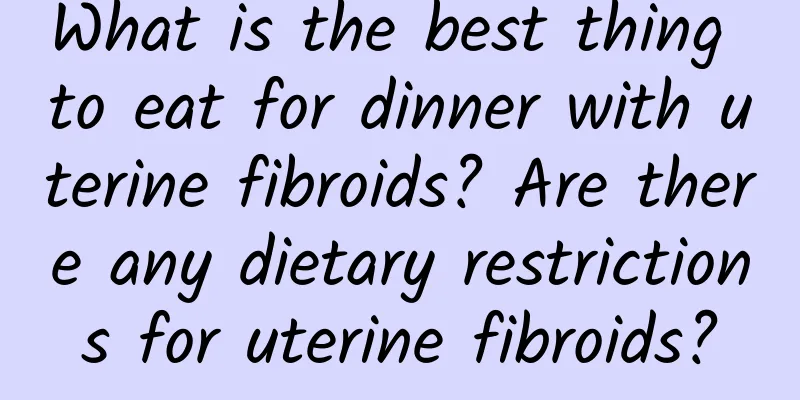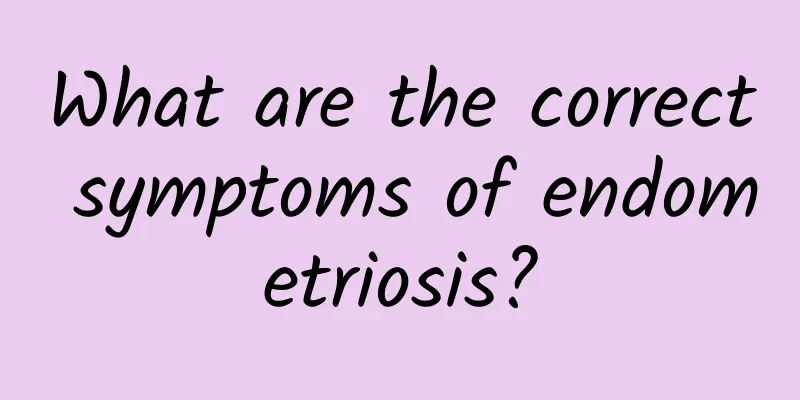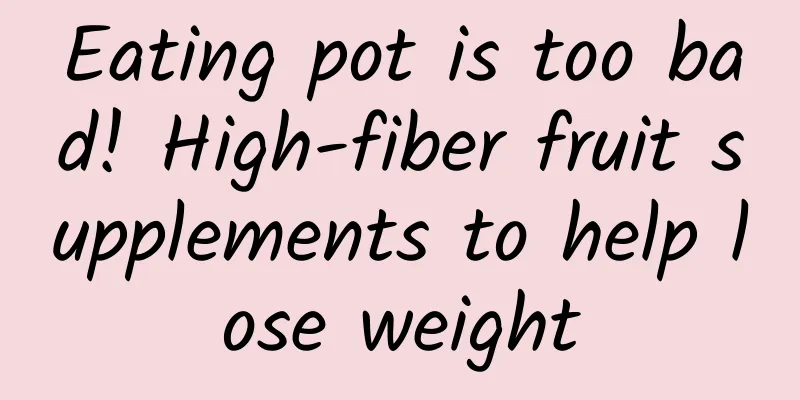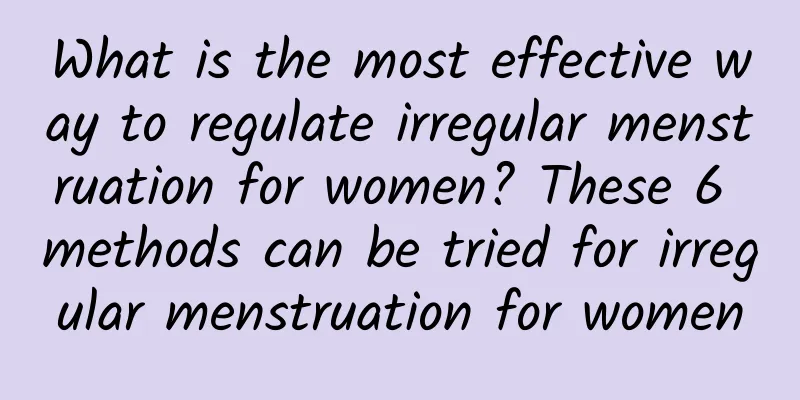"Weight Loss Myth": Does being a vegetarian really help you lose weight? Nutritionists say...
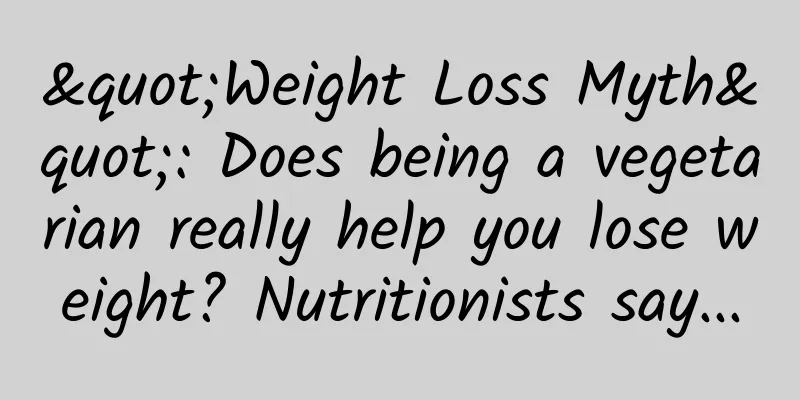
|
When it comes to losing weight, most people's immediate associations are "starch makes you fat, so it's best not to eat it", "meat is high in calories, so it's best to eat less", and "vegetables and fruits are low in calories, so it's okay to eat more of them". Therefore, we often see some people who, in order to lose weight, only eat half a bowl of rice and will not eat a single bite more, or even dare not eat a whole meal; or they are worried about the high calories in meat and dare not eat meat; but they pile a lot of vegetables on their plates, and many people even become vegetarians in order to lose weight! …..Is it really easier to lose weight by eating vegetarian food? Today we will discuss this common weight loss myth - vegetarian diet! ◎Being a vegetarian is not what you think! Stella, who mainly eats meat, started eating vegetarian food for the first time many years ago. A vegetarian friend invited me to a buffet-style vegetarian restaurant that was very popular at the time. This first vegetarian experience did not give me a very good impression: in order to make the dishes and appearance more varied, a lot of over-processed vegetarian meat was used; and in order to make the vegetables taste better, many vegetables were stewed and thickened with broth; in order to make the vegetarian meat with a single ingredient have more flavor, many kinds of cooking methods were used, such as braising, sweet and sour, shacha, hot sauce, salad dressing, canned pineapple and other methods to season it... For me who doesn't like strong flavors, it didn't feel very good. Too many seasonings and over-processed vegetarian meat made it impossible to taste the original flavor of the food, and the heavy taste only made people thirsty and want to drink water. Because some of my friends are also vegetarians, I would occasionally eat vegetarian food with them later. I discovered that not all vegetarian food is as unhealthy as my first experience had made. Some vegetarian food has a lighter taste and uses less processed vegetarian meat. Unfortunately, there are not many such restaurants. At least the vegetarian restaurants near most office workers only sell vegetarian food without meat. They do not pay attention to health. Just like my first experience as a vegetarian, it is full of over-processed and over-seasoned food. This makes me sigh: being a vegetarian is not as healthy and helpful for weight loss as we imagine! @If you eat vegetarian food improperly, it will be easy to gain weight and hard to lose weight! Why does improper vegetarian diet make us fatter? Stella summarizes four reasons for her observations on vegetarianism: Reason 1: Highly processed meat The so-called vegetarian meat refers to vegetarian food that uses vegetarian ingredients to make a meat-like taste. Since the main ingredient is protein, it is considered "vegetarian" meat. The most common vegetarian meats include processed soybean products (such as tofu, dried tofu, bean curd, fried tofu, dried shredded tofu, etc.), vegetarian meat made from cereal protein (gluten) (such as gluten, roasted bran, noodles, tripe, etc.), or processed with soy protein or konjac, and made through shaping, steaming, and frying. The following table shows the calories per 100 grams of vegetarian meat. The information comes from the Food Nutrition Facts Database of the Department of Health. We can find that except for tofu-like foods that are made directly from fresh soybeans and undergo less processing, which are lower-calorie and healthier vegetarian proteins, other vegetarian meats are mostly accompanied by complex processing steps such as molding, steaming, and frying. In this process, a large amount of fat, sugar, and sodium are added, resulting in many processed vegetarian meats being high-calorie, low-nutrition foods. Eating too much of this type of vegetarian meat will not only not help with weight loss, but will also be detrimental to health. The yellow blocks in the table above are less processed soy products such as tofu. Basically, meat products should not contain sugar, while soy products contain a small amount of sugar. However, we can see that some vegetarian meat products such as fermented black beans contain nearly 15 grams of sugar, while the sugar content of dates and vegetarian meat floss exceeds 40 grams, which shows how much extra sugar is added during the processing. In theory, beans are low-fat foods, with each serving generally containing about 5 grams of fat, but from the table below we can see that the fat content of most vegetarian meats is close to 10 grams, and some even have more than ten or nearly twenty grams of fat. This shows that a lot of extra oil is added during the processing of some vegetarian meats; not to mention the high amount of sodium added during over-processing! (The table indicates in red the vegetarian meats with sodium content exceeding 500 mg per 100 g for your reference) Reason 2: Large amounts of fat from vegetables A normal meal usually includes staple food, meat, and vegetables. Vegetarians do not eat meat, so in addition to replacing the original animal meat with vegetarian meat, they will also choose more vegetables than meat eaters. Although vegetable calories are relatively low among the five major food groups, there is one major fatal flaw in consuming large amounts of vegetables: cooking oil. Fruits can be eaten raw, but oil is essential for cooking vegetables, whether it is stir-frying, mixing with oil for cold dishes, eating with sauce, or even thickening (adding starch to thicken the sauce after stir-frying) or deep-frying... oil is indispensable. One tablespoon of oil has about the calories of half a bowl of rice. If you cook for yourself, you may be able to use a non-stick pan or use less oil to cook the vegetables. However, when eating out, especially at buffets with a lot of stir-fried dishes, the amount of oil used is more than normal cooking in order to stir-fry the large amount of vegetables in the pan. (Note: Based on Stella’s previous experience in preparing large amounts of food for group meals at school, she found that the only way to fry a large amount of vegetables in a pan at once is to add a large amount of oil and simmer the vegetables until cooked…. This is also why the vegetables at a buffet are definitely not as delicious as those at a stir-fry restaurant>_ Reason 3: Heavy taste, adding more calories As described at the beginning, in order to make vegetarian dishes with relatively simple ingredients have more varied flavors, when the ingredients cannot be varied as much as meat (different meats have different textures and flavors, so a lot of meat can be steamed, grilled, or reduced or spiced to make it taste great), it can only be changed through external forces - seasonings... This is why many vegetarians like to use various seasonings to make dishes such as braised, sweet and sour, shacha, hot sauce, salad dressing, etc. However, most sauces contain extra calories, and some are as high in calories as fat, so the more ingredients and the stronger the flavor, the higher the calories. The following are the calories of various common sauces, per 100 grams. The data comes from the Food Nutrition Facts Database of the Department of Health. We can find that adding sauce will add more extra calories to vegetarian dishes. Reason 4: Poor protein quality Protein is the main building block of all living things. It is the main component of cells and body organs. The enzymes, some hormones, antibodies, our skin, hair and nails in the body are all made up of protein. Therefore, protein is not only the main building material (raw material) of the body, but also an important substance for regulating physiological functions. Adults need to take in protein every day to provide the body with the materials needed to repair tissues, replace old ones with new ones, and help maintain health. In addition to protein to provide building materials, children also need more protein to help with growth and development. The smallest unit of protein is amino acid. If we imagine amino acid as the smallest unit of building blocks, then the hundreds of thousands of different types of proteins in the body are all finished products made up of these different amino acid building blocks. After disassembling the various types of proteins in the human body, we can summarize about 22 different shapes of building blocks (amino acids). Some of these amino acid building blocks can be synthesized by our body, called non-essential amino acids, while some cannot be synthesized by the body and must be obtained through food, called essential amino acids (there are 8 essential amino acids required by adults, and growing children need to add arginine and histidine, for a total of 10 essential amino acids). Generally speaking, the quality of protein is determined by whether the amino acids contained in the food can meet the body's need for essential amino acids. If the amino acid ratio is good and the amount is sufficient, and it can provide enough for growth or maintenance of health, it is called high-quality protein. The protein in general vegetarian food mostly lacks some essential amino acids needed by the human body, so the quality is poor (this is easy to imagine, because humans are animals after all, and vegetarians eat plants, and the types and amounts of essential amino acids required by animals and plants are naturally different). Therefore, if you eat vegetarian food without paying attention to the combination and complementarity of proteins, it is easy to fail to consume enough high-quality protein, which will affect the operation of physiological functions and even our metabolism. The figure below lists the essential amino acids that are relatively lacking in various types of plant protein foods. Generally speaking, we can make up for the poor quality of plant protein amino acids through protein complementarity in the meal. For example, add beans to the rice you eat, or eat corn and beans together, or eat plant protein with animal protein such as eggs and milk to achieve the purpose of amino acid complementarity. In summary, if vegetarians want to be "healthy" and "slim", they need to pay attention to the above issues, choose ingredients carefully (avoid processed vegetarian meat), pay attention to cooking methods (choose cooking methods with less oil), pay attention to cooking methods (avoid excessive seasonings and heavy flavors), and pay attention to the complementarity between proteins! If you want to lose weight by eating vegetarian food, don't neglect these four principles of vegetarian diet for slimming and health^_^ This article comes from: Nutritionist Stella's Weight Loss & Nutrition Blog ※For more information, please see "Nutritionist Stella's Weight Loss & Nutrition Blog" |
Recommend
Several good ways to regulate dysmenorrhea
Dysmenorrhea requires women to regulate their con...
Can I use moxibustion on my lower abdomen for pelvic inflammatory disease?
Moxibustion of the lower abdomen for pelvic infla...
Why do women suffer from chronic cervicitis? Women must know the three major causes of cervicitis
There are many reasons why women suffer from chro...
What should patients with acute adnexitis pay attention to in their daily lives?
What should patients with acute adnexitis pay mor...
Is the incidence of chronic cervicitis in women high? Analysis of the causes of chronic cervicitis in women
Chronic cervicitis is a common disease among wome...
What are the dangers of ovarian cysts? Is the treatment expensive?
What are the dangers of ovarian cysts? Is the tre...
Does the milk tea you drink really have "milk"? Is milk tea calcium-supplementing and nutritious? The answer is…
Do you have the habit of drinking dairy products?...
What are the treatments for cervicitis in women?
What are the treatments for female cervicitis? Ge...
Dietary considerations for patients with acute vaginitis
Dietary precautions for patients with acute vagin...
Will ectopic pregnancy cause persistent stomach pain?
Ectopic pregnancy is a common gynecological disea...
When is the best time to have an abortion? What should you pay attention to after an abortion?
It is not uncommon for men and women in love to h...
What are the consequences of long-term irregular menstruation?
What are the consequences of long-term irregular ...
What tests are done to diagnose sinus atresia?
The diagnosis of sinus atresia requires a compreh...
The harm and treatment methods of female amenorrhea
Women themselves do not realize the harm of abnor...
Introduction to the causes of clinical vaginitis
Vaginitis brings a great burden to families and s...

